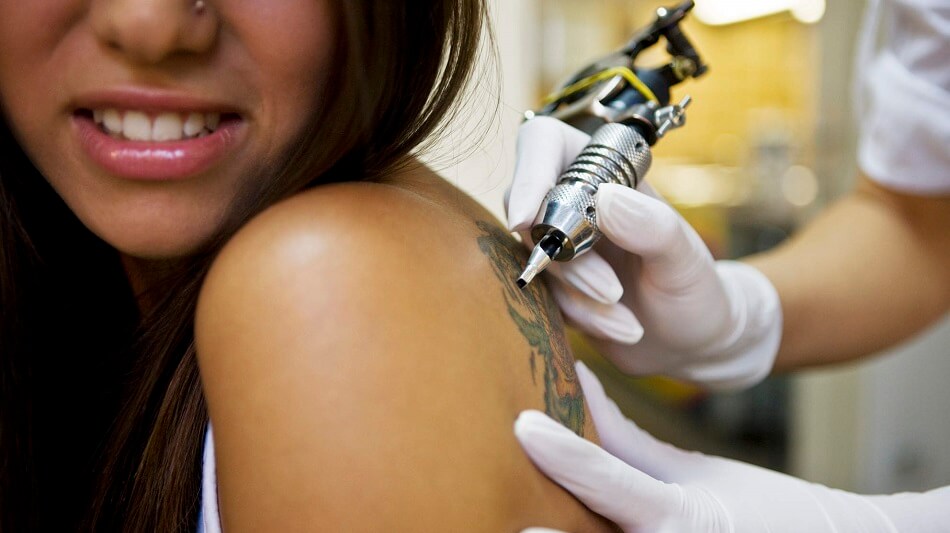
Tattoo is a permanent mark made on the skin by using a tiny needle filled with ink piercing the epidermis, or outer layer of the skin up to 3,000 times a minute.
The process of creating a tattoo involves a tattoo artist piercing the skin using a hand-held device that looks like a sewing machine with one or more protruding needles, which releases ink droplets as the devices repeatedly puncture the skin until a design is formed.
Healthcare providers have reported cases of skin irritation, allergic reactions and opportunistic skin infections in some people with new or old body-arts (Tattoos). Although a lot of factors can contribute to the unwanted skin troubles associated with Tattoos, dermatologists suggest that those who get their bodies tattooed risks the following.
RISKS ASSOCIATED WITH TATTOOS
Tattoos can cause allergic reactions right after getting them or even after some time. The ink used can cause itchy rash on the tattooed part, and may irritate the skin when skin exposed to the sun.It causes skin irritations like redness, swelling, and pain. Unsterile tattooing equipment and needles can spread infectious diseases such as hepatitis B, hepatitis C, tetanus and HIV. This is why a one-year wait between getting a tattoo and donating blood is usually advised.Those with delicate skins stand the risk of having keloids, bumps or scar tissues.During the tattooing process, if the blood vessels are injured, it may to unwanted bruises on the skin.Certain tattoo inks such as black and red ink can be toxic and contain compounds that are likely to cause cancer.
Source: thewhistler
 http://c.jumia.io/?a=55304&c=11&p=r&E=kkYNyk2M4sk%3d&ckmrdr=&utm_source=cake&utm_medium=affiliation&utm_campaign=55304&utm_termhttp://c.jumia.io/?a=55304&c=11&p=r&E=kkYNyk2M4sk%3d&ckmrdr=&utm_source=cake&utm_medium=affiliation&utm_campaign=55304&utm_term=
http://c.jumia.io/?a=55304&c=11&p=r&E=kkYNyk2M4sk%3d&ckmrdr=&utm_source=cake&utm_medium=affiliation&utm_campaign=55304&utm_termhttp://c.jumia.io/?a=55304&c=11&p=r&E=kkYNyk2M4sk%3d&ckmrdr=&utm_source=cake&utm_medium=affiliation&utm_campaign=55304&utm_term=







No comments:
Post a Comment